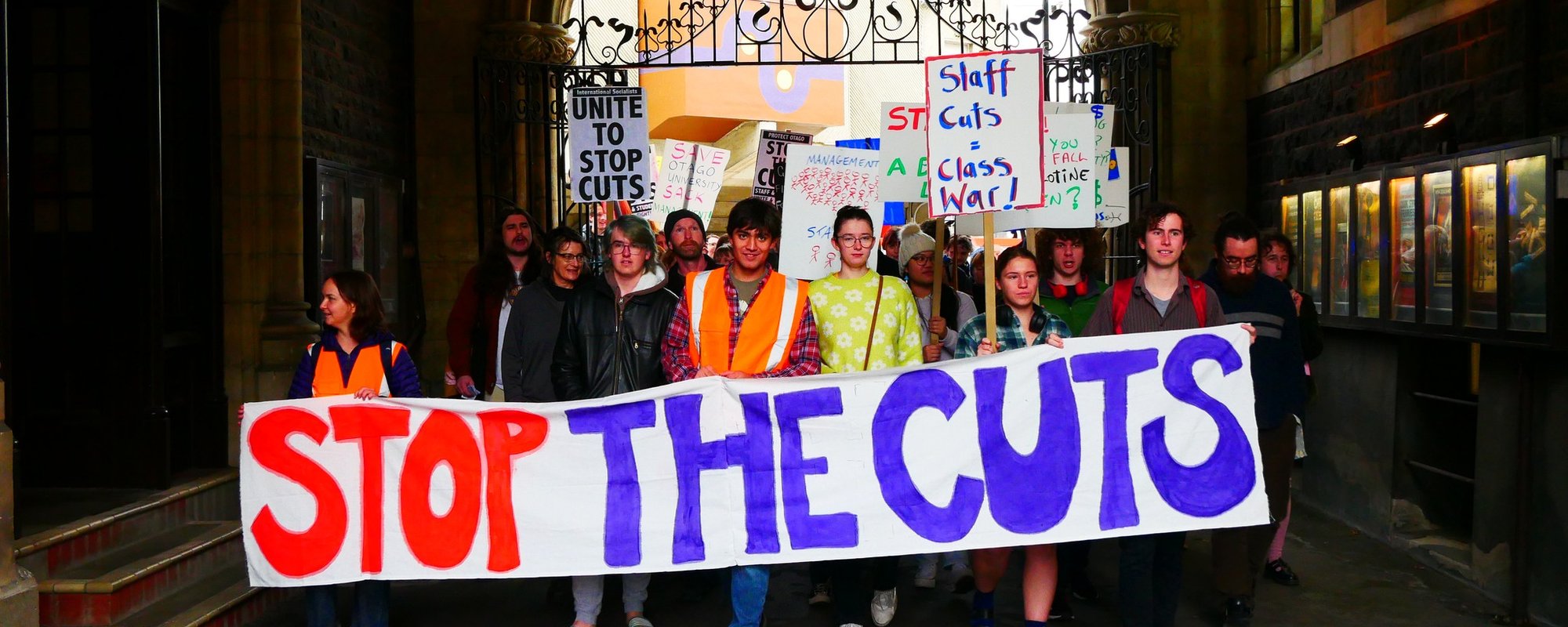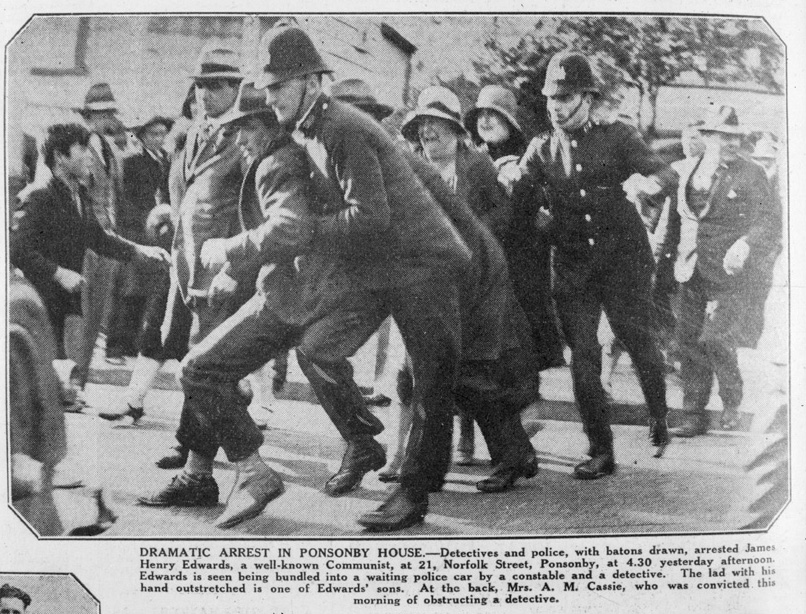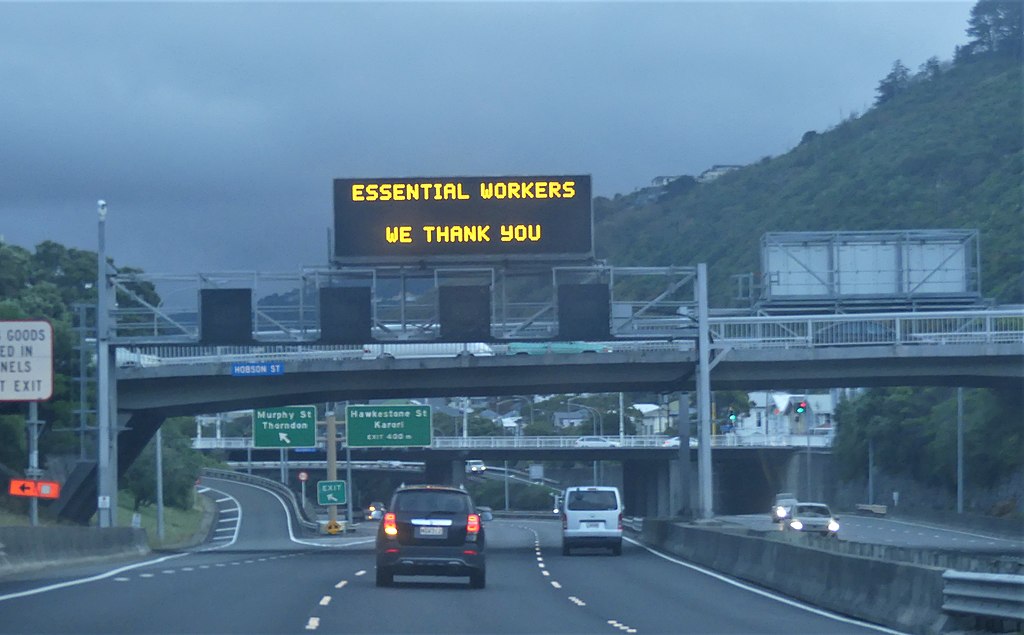The Employment Relations Act Amendment Bill had its First Reading in Parliament on 5th June and passed by 61 votes (National, ACT & Dunne) to 58. The Bill now goes to the committee stage and will come back at the end of the year for the critical Third Reading that will decide whether it will pass into law.
An amendment bill may not sound like much but this one is the biggest legal attacks on workers since the notorious anti-union Employment Contracts Act 1991. The government’s aim is clear – to arm the employers legally for union busting and to ratchet down terms and conditions.
The present Employment Relations Act 2000 (ERA) dates back to the last Labour government. On coming to power the Clark government moved swiftly to replace the hated Employment Contracts Act. The ERA shifted the balance back towards collective bargaining, and gave unions back recognition that they had lost under the ECA. A key concept of the ERA, after an amendment in 2004, is the notion of good faith in bargaining and a requirement that unions and employers conclude collective agreements, although the employers were left with a get-out clause.
Whilst Labour under Helen Clark restored the role of unions in bargaining her regime proved to be worse than National’s on restricting workers’ ability to take action. Under the ERA the restrictions on strikes were taken over wholesale from the ECA. The only circumstances for a legal strike, apart from over health and safety, were in relation to bargaining after a contract had expired. However, Labour added other restrictions: that a strike was unlawful unless 40 days had elapsed since bargaining was initiated, and that passenger transport workers would have to give their employers advance written notice and information about intended action.
The ERA has undergone several amendments since 2000. Amendments under Labour were generally progressive, although none loosened the restrictions on strikes. Since 2008, under Key’s National-led governments, amendments have been reactionary. The most recent of these was last year’s Employment Relations (Secret Ballot for Strikes) Amendment Act. The amendment has added another restriction on workers, and given the employers an opportunity to mount legal challenges on strike vote procedures. The secret ballot qualification is another hoop to make the unions jump through to mount a legal strike.
Still, the ERA is an improvement on the ECA. The difference is illustrated well by the Ports of Auckland dispute of 2012. The port company fell foul of the good faith bargaining clauses and was unable to achieve its objective to smash the Maritime Union. However, the continuity of legal restrictions was also shown. The union was at a disadvantage because whereas ships could be diverted to other ports, legal industrial action was confined to the Auckland wharves. Consequently, the union adopted a compromise approach because it felt unable to adopt the road of illegal action.
The port and meat workers’ strikes of 2012 saw off employers’ attempts to break the unions. These successes, and the persistence of multi-employer collective agreements (MECAs) in the health and education systems, are behind the National-led government’s introduction of the Employment Relations Amendment Bill. The Bill’s main provisions are to undermine collective bargaining, toughen anti-strike clauses, disadvantage new workers, weaken protection for workers transferred between contractors and abolish legal minimum rest breaks.
The CTU has produced some good one-page factsheets on aspects of the Bill. Behind any effective negotiation lies the threat of strike action, the well-spring of union power. Workers may not need to go on strike to win concessions, but they need to be prepared to take action at least. The Bill’s anti-strike clauses need to be widely known.
As we have seen a legal strike can only take place over collective bargaining, provided that a collective agreement has expired, 40 days has elapsed since bargaining initiated and there has been a secret ballot. The Bill adds another layer of restriction, which is to require unions to give notice of strikes to the employers. The notice would tell the employer the “nature of the proposed strike, including whether or not it will be continuous”, the places the strike will occur, the time and date the strike will begin, and the time and date the strike will end.
The advantages of advance notice to the employers are obvious. The requirements take away all elements of tactical flexibility by unions. The employers would know exactly what to prepare for in order to limit the effectiveness of the strikes. The scope for the employers’ lawyers to exploit any administrative hiccup would be extended.
A second measure aimed at industrial action is that the Bill hands employers the ability to deduct pay for actions short of a strike. Under the amendment bill the concept of a partial strike is introduced into the ERA. A partial strike covers all actions short of stopping work, except overtime and call-out bans. Unions will have to fulfil all the legal requirements, including giving notice of the partial strike. An employer can then issue a notice to the unionists to inform them that they will be making a pay deduction. The amount of the pay deduction can be a flat rate of 10% or based on whatever the employer calculates as the amount of time the affected work will not be performed.
The main changes the government are attempting to introduce are to undermine collective bargaining. They would allow employers to ask the Employment Relations Authority to declare that bargaining is over, although agreement has not been reached. Unions would not be able to initiate bargaining again for 60 days; and once bargaining is declared to be over workers will lose the ability to strike legally. This measure is evidently inspired by the legal problems the Ports of Auckland had.
Another part of the attack on collectivism is to undermine MECAs. The CTU factsheet explains:
MECAs (multi-employer collective agreements) are agreements between a union or unions and two or more employers) setting out terms and conditions for a particular group of union members. MECAs are particularly common in the public service where 76% of union members in education and 83% in health are covered by MECAs rather than single employer collective agreements.
The Government proposes to allow employers to opt out of collective bargaining for a MECA within 10 days of receiving the notice of bargaining. They can do so by writing to the union and the other employers in the negotiation. The bargaining then ends for that employer and they or the union can initiate bargaining for a single-employer collective agreement. Because bargaining for the MECA has ended, workers cannot take action in support of joining a MECA.
Another change the government wants to enact is to take away the right of new employees to be put on an existing collective agreement for their first 30 days. The reason for this change was explained in a Cabinet Paper, it “will enable employers to offer individual terms and conditions that are less than those in the collective agreement.”
For contracted services there are changes to workers’ rights on transfer of employment from one contractor to another. Small firms of less than 20 employees would be exempt from having to comply with the existing legal protection. The CTU factsheet explains:
Existing law provides for strong protections for workers in sectors that are particularly vulnerable to exploitation: all cleaning and food services plus caretaking, orderly and laundry services in certain sectors such as health, aged care and education. Under current law, when these services are contracted out the workers can choose to transfer to the new employer with their existing terms and conditions of employment.
Another change is to rest breaks. The current law provides minimal rights to breaks: a 10 minute break every 4 hours and a 30 minute break if working over 4 hours. National wants to remove even these pathetic rights. Instead, employers will be able to decide what breaks to give, if any. If they do not allow a break at all they will be legally obliged to make compensation, but are vulnerable workers likely to be able to enforce compliance?
The Employment Relations Amendment Bill is about driving down the terms and conditions of workers. It is an indictment of the naked greed of the capitalists and the anti-worker, class-war policy of the National Party. It is not good enough for them that New Zealand heads the league table for growth of inequality, that we have a disgraceful level of child poverty and that so many people have to head overseas to make a living. This government is small-minded, its policies are backward. They have no strategy but low pay for the working class and to crass exploitation of the environment.
The National Party has thrown down the gauntlet to the unions. They must rise to the challenge and campaign hard against the Bill under the lead of the CTU. A narrowly focused campaign on union members is not enough. Some on the Left have called on the CTU to name the day for a national day of action at the earliest opportunity. The action would be stopwork meetings around the country in the manner of the day of action in October 2010 against the last raft of employment law amendments. This call is premature. As in 2010 it would result in far too small meetings to provide a launch-pad for industrial escalation. The October 2010 day of action marked the end of any effective campaign.
What is needed is a truly mass-scale groundswell against this attack on the working class. More than anything else we need an outgoing, political campaign that links opposition to the Bill to a wider struggle against low pay and inequality.
Image credit: Council of Trade Unions website








